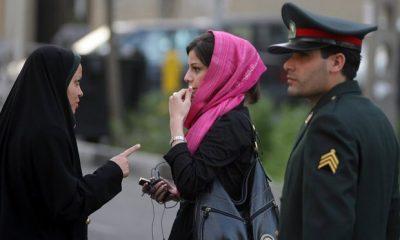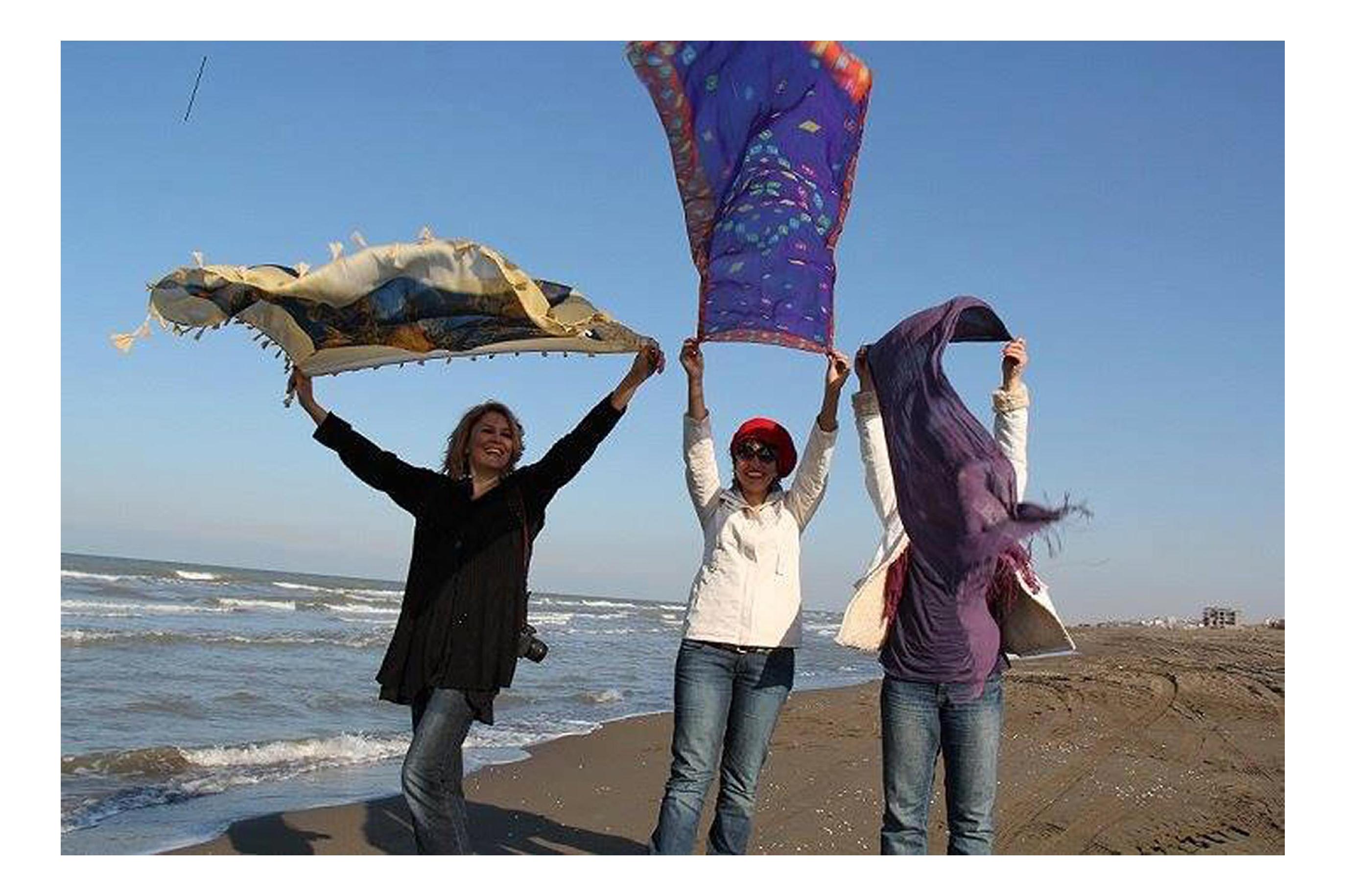As a foreign woman in Iran, the most common question I’m asked is: “What do you think about hijab?”
I can often work out what answer I’m expected to give, simply by looking at whoever is asking. Some obviously pious women, usually without a single strand of hair showing, want to tell me how they have been liberated by hijab.
The others — women dressed in less good, or even ‘bad hijab’ — want to tell me (and, often, tell me and tell me again!) how much they despise the hijab laws.
These laws make it clear that all women and girls over the age of 9 must cover their head, and loosely cover their bottom, in all public places.
Some of the women — and men — who don’t like hijab are fighting against it.
The My Stealthy Freedom campaign shares pictures of women (as above) living in Iran who have enjoyed a moment of ‘stealthy freedom’ by (illegally) removing their hijab outside a domestic setting.
Men support the campaign by sharing pictures with their heads covered while their wives and female friends pose without hijab. Some #meninhijab have commented on what it’s like wearing hijab, in a video here.

Seven young Iranians were arrested after a video of them dancing – without hijab – to Pharell Williams ‘Happy‘ when viral. They were sentenced to six months in prison and 91 lashes, but their sentences were suspended “as long as they commit no more offenses against the Islamic Republic during the next three years”
Day to day, it’s the ‘morality police’ who enforce Iran’s Islamic code of conduct. Without notice, they set up mobile checkpoints in towns across Iran. There’s usually a van, a few bearded men and one or two women in black chadors. They can decide that women are showing too much hair, or wearing too much make-up. Women, and men too, can be wearing the wrong sort of clothes, or could be walking together when they are not married.

If the problem can’t be resolved immediately, the perpetrators can be taken into custody. An app has been developed to help people ‘get around’ the morality police – crowdsourced information about the pop-up locations means people can avoid the ‘police’.
More direct action is sometimes taken. The video here, from the city of Rasht, shows how police had to release a woman in the face of public outrage, or risk a beating themselves. And the video here shows a ‘morality policewoman’ losing out against a woman with much more hair showing than headscarf.
Even though hijab has been considered “the beating heart of the religion”, some senior politicians have spoken in the last decade against its over-zealous enforcement. Ahmadinejad, when he was President, shocked both his admirers and detractors on live television: “Some [men] get all worked up the moment there is the issue of women”, he said. “Whenever there are moral problems, they [the men] are to blame.” He added “We really consider it an effrontery that a couple are stoped on the street and asked about their relation to one another. No one has the right to ask them this kind of question. It is wrong in my opinion.”
More recently, President Rouhani has expressed a belief that citizens should not be forced into “good” behaviour, saying that “you cant send people to heaven by the whip.”
